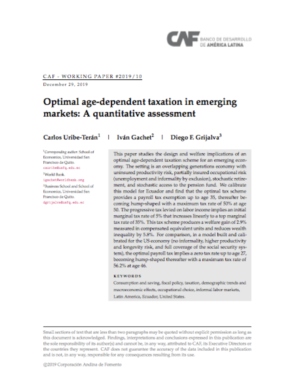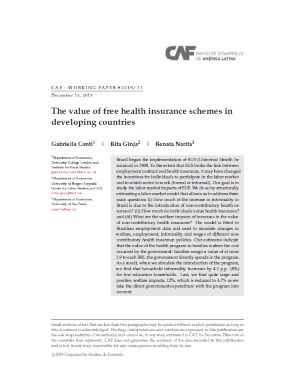Informality and Productivity: The Role of Unemployment Insurance Schemes
Resumen
We study the design of optimal unemployment protection schemes to evaluate its impact on labor markets, welfare and productivity. We consider a life-cycle economies with formal and informal labor markets, unobservable effort to find and keep formal jobs, and unobservable heterogeneities across worker to find better formal jobs. We analyze the first best allocation to compare with the allocations stemming from the implementation of two alternative schemes: (i) a simple unemployment insurance system with a defined profile of unemployment benefits; (ii) an unemployment insurance saving account scheme parameterized by a replacement rate, an initial contribution to the saving account, a minimum level of savings at which the payment is suspended, and a maximum level of savings at which the contributions are suspended. Our quantitative analysis makes clear that both schemes can have a significant impact on welfare and productivity. Two additional lessons can be learned. First, no scheme is necessarily better in both economies. Second, a reform that implements an scheme that it is welfare improving does not necessarily boost productivity and viceversa.
Fecha
2017-02-22Citar de esta publicación
Item perteneciente a la Colección
Autor
Cirelli, FernandoEspino, Emilio
Sanchez, Juan M.
Items Relacionados
Optimal age-dependent taxation in emerging markets: A quantitative assessment
This paper studies the design and welfare implications of an optimal age-dependent taxation scheme for an emerging economy. The setting is an overlapping ...
The Value of Free Health Insurance Schemes in Developing Countries
Brazil began the implementation of SUS (Universal Health Insurance) in 1988. To the extent that SUS broke the link between employment contract and health ...
Education, Signaling and Mismatch
We assess the importance education as a signal of workers skills and the e¤ects of poor signaling quality on labor market outcomes. We do so by merging ...






